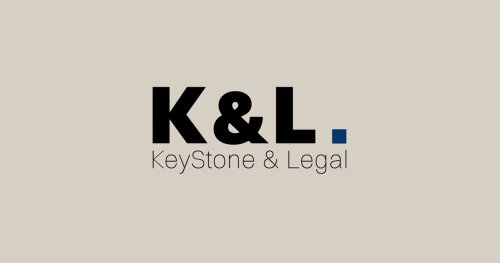Best Office Solutions Lawyers in Seoul
Share your needs with us, get contacted by law firms.
Free. Takes 2 min.
List of the best lawyers in Seoul, South Korea
About Office Solutions Law in Seoul, South Korea:
Office Solutions law in Seoul, South Korea encompasses the legal regulations and requirements related to setting up and operating office spaces, including leases, licenses, zoning laws, and more.
Why You May Need a Lawyer:
You may need a lawyer for Office Solutions in Seoul if you are facing issues with lease agreements, zoning disputes, licensing requirements, or any other legal matters related to office spaces.
Local Laws Overview:
In Seoul, South Korea, office solutions are governed by a combination of national laws and local regulations. It is important to understand the lease laws, zoning ordinances, and licensing requirements specific to Seoul.
Frequently Asked Questions:
1. Can I sublease my office space in Seoul?
In Seoul, subleasing office space is typically allowed, but it is important to review your lease agreement and local laws to ensure compliance.
2. What are the zoning regulations for office spaces in Seoul?
Zoning regulations in Seoul dictate where offices can be located and what types of businesses can operate in certain areas. It is essential to adhere to these regulations to avoid legal issues.
3. Do I need a business license to operate an office in Seoul?
Yes, a business license is required to operate an office in Seoul. You must obtain the necessary permits and licenses to ensure compliance with the law.
4. How can a lawyer help with negotiating office lease agreements in Seoul?
An experienced lawyer can review lease agreements, negotiate terms, and ensure that your rights are protected throughout the leasing process.
5. What are the penalties for violating office solutions laws in Seoul?
Penalties for violating office solutions laws in Seoul vary depending on the specific violation. It is best to consult with a lawyer to understand the potential consequences.
6. Can a lawyer help with resolving disputes with landlords or tenants in Seoul?
Yes, a lawyer experienced in office solutions law can help mediate disputes, negotiate settlements, or represent you in court if necessary.
7. How long does it take to set up an office in Seoul?
The timeline for setting up an office in Seoul can vary depending on various factors, including obtaining permits, licenses, and finding suitable space. A lawyer can help expedite the process.
8. Are there any tax implications for office solutions in Seoul?
Yes, there are tax implications for operating an office in Seoul. A lawyer can provide guidance on tax obligations and compliance requirements.
9. What are the key differences between leasing and buying office space in Seoul?
Leasing office space in Seoul typically involves less upfront costs and flexibility, while buying offers long-term stability but requires a significant investment. A lawyer can help you weigh the pros and cons.
10. How can I ensure my office space is compliant with accessibility laws in Seoul?
Accessibility laws in Seoul require businesses to provide accommodations for individuals with disabilities. A lawyer can review your office space to ensure compliance with these laws.
Additional Resources:
For additional resources related to Office Solutions in Seoul, you can contact the Seoul Metropolitan Government or seek assistance from the Seoul Bar Association.
Next Steps:
If you require legal assistance with Office Solutions in Seoul, it is advisable to contact a reputable law firm specializing in real estate and commercial law. Schedule a consultation to discuss your specific needs and concerns.
Lawzana helps you find the best lawyers and law firms in Seoul through a curated and pre-screened list of qualified legal professionals. Our platform offers rankings and detailed profiles of attorneys and law firms, allowing you to compare based on practice areas, including Office Solutions, experience, and client feedback.
Each profile includes a description of the firm's areas of practice, client reviews, team members and partners, year of establishment, spoken languages, office locations, contact information, social media presence, and any published articles or resources. Most firms on our platform speak English and are experienced in both local and international legal matters.
Get a quote from top-rated law firms in Seoul, South Korea — quickly, securely, and without unnecessary hassle.
Disclaimer:
The information provided on this page is for general informational purposes only and does not constitute legal advice. While we strive to ensure the accuracy and relevance of the content, legal information may change over time, and interpretations of the law can vary. You should always consult with a qualified legal professional for advice specific to your situation.
We disclaim all liability for actions taken or not taken based on the content of this page. If you believe any information is incorrect or outdated, please contact us, and we will review and update it where appropriate.















